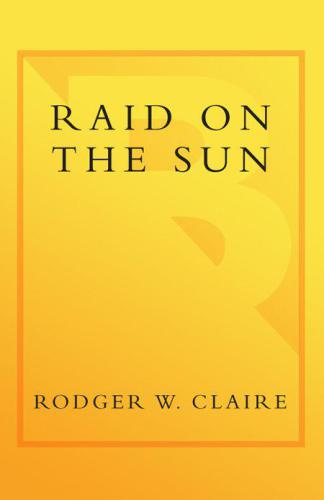
Raid on the Sun
Inside Israel's Secret Campaign that Denied Saddam the Bomb
- اطلاعات
- نقد و بررسی
- دیدگاه کاربران
نقد و بررسی

March 8, 2004
This gripping account of Operation Babylon, the Israelis' 1981 raid on the Iraqi nuclear reactor at Osirak, is the first to draw on planners' and pilots' own memories. The raid was planned to follow a long campaign of espionage, sabotage and outright assassination by the Mossad, which had failed to prevent the French-built reactor from being about ready to produce weapons-grade plutonium in the summer of 1981. Then the Israeli air force, taking its new F-16s on their first combat mission and one far beyond their designed performance, struck, obliterating the reactor with no losses, few misses and only one civilian casualty. Tactics, technology and weapons are all presented in a clear manner that does not slow the pace. L.A.-based journalist Claire's group portrait of the eight superlatively skilled and trained pilots includes Zeev Raz, the squadron leader and now a general; the ace, Iftach Spector, who missed his target because he suffered a blackout induced by the flu; and Ilan Ramon, who became Israel's first astronaut and was lost on the Columbia
.The final result reads like a techno-thriller that is difficult to put down once the mission gets airborne.

March 15, 2004
Lack of good intelligence-gathering sources has plagued the United States for decades-long before the evident disappearance of the Iraqi weapons of mass destruction despite the use of all our technology. This was not the case in 1981, when the Israeli Air Force destroyed Iraq's first nuclear reactor. Iraq had purchased its nuclear reactor from France in 1975 and had scientists at work on extracting plutonium to develop an atomic weapons program. Claire, the first journalist granted access to classified documents and interviews with strike participants, details how the Israeli government obtained high-resolution satellite photographs of the site from the United States, adapted newly acquired F-16 fighters so that they could make the flight without refueling, and secretly trained pilots for the mission. Claire breathes life into this largely forgotten event, and his sensitivity to the human element of the story-especially the ability of the Israelis to obtain human intelligence in planning their response-is striking. Extremely well written, this is highly recommended for all libraries.-Charles M. Minyard, U.S. Army, Blountstown, FL
Copyright 2004 Library Journal, LLC Used with permission.

March 1, 2004
From interviews the Israeli government allowed the author to conduct with the pilots who destroyed Iraq's nuclear reactor in 1981, journalist Claire dramatically reconstructs the origin and execution of the attack. Structurally splicing scenes of the pilots' preparations on the day of the attack with flashbacks to the espionage and intelligence activity that preceded it, Claire relates how carefully the Israelis watched the French sale and shipment of the reactor during the 1970s. Sabotage, most likely by the Israelis, failed to stop the project--obviously intended to produce plutonium for a nuclear bomb, not electricity, as Saddam Hussein proclaimed. Vowing never to allow a second Holocaust, Menachem Begin ordered the raid. The operation-- which is the heart of Claire's account-- faced an obstacle when it was determined that the distance to the target exceeded the range of the F-16 warplane. When that problem is ultimately solved, Claire proceeds to render the actual flight and attack in true pulse-pounding detail. An intense read that will carry military-affairs readers from cover to cover. (Reprinted with permission of Booklist, copyright 2004, American Library Association.)




دیدگاه کاربران